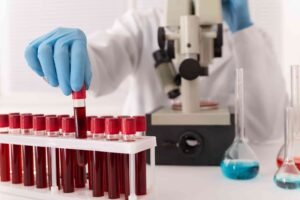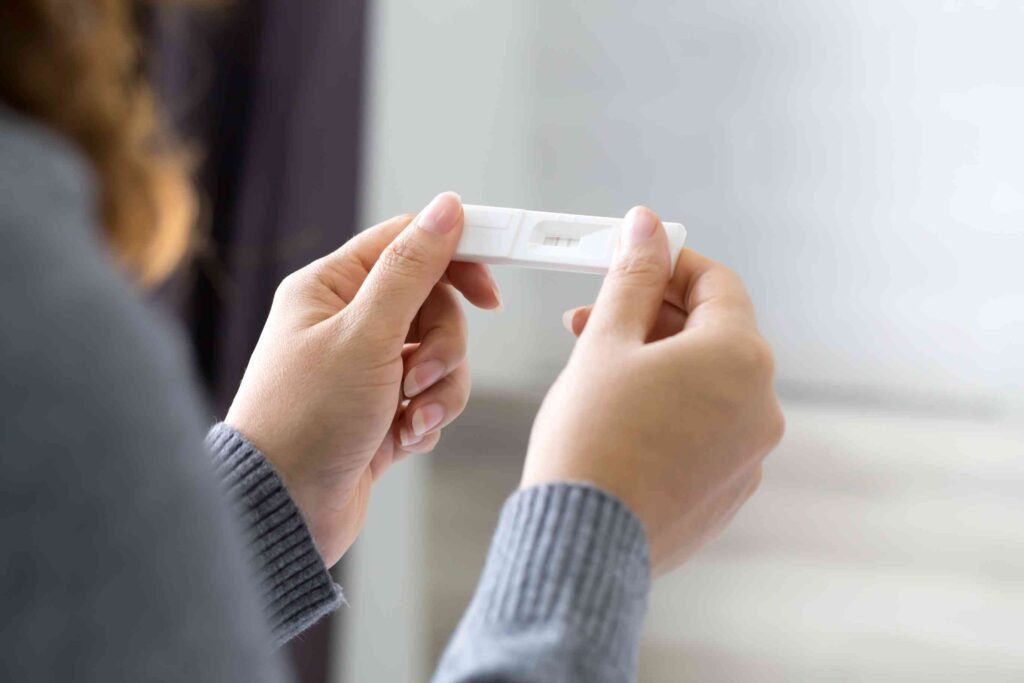Top 7 Fertility Tests Every Woman Should Consider
Let’s be real—understanding your fertility isn’t always a straightforward journey. Whether you’re thinking about starting a family soon or just curious about your reproductive health, having the right information (and support) can make a big difference. That’s where fertility tests come in. They offer insights into how your body is functioning and can help identify any roadblocks that may be standing in your way.
This blog dives into the top 7 fertility tests that every woman should consider. We’ll break down what they are, why they matter, and what to expect during each one. No medical jargon overload, just clear, helpful info to guide you on your path.

Why Fertility Testing Matters?
Before we jump into the list, let’s talk about why fertility tests are even necessary. Many women assume that if they’re generally healthy, their fertility will naturally fall in line. While that’s true in some cases, fertility can be influenced by a whole range of factors—hormones, lifestyle, underlying health conditions, age, and more.
Early testing can offer peace of mind, or it can flag potential issues before they become bigger problems. Plus, if you do end up needing assistance from a fertility specialist, having test results already in hand can speed up the process.
Top 7 Fertility Tests Every Woman Should Consider
1. Hormone Level Testing (Day 3 FSH, LH, Estradiol)
Let’s start with one of the most common fertility tests: hormone panels. These tests are typically done on the third day of your menstrual cycle and look at key hormones that regulate ovulation and the menstrual cycle.
a. FSH (Follicle-Stimulating Hormone): High levels can be a sign that your ovaries are working harder than they should, possibly indicating diminished ovarian reserve.
b. LH (Luteinizing Hormone): Plays a key role in triggering ovulation.
c. Estradiol: A form of estrogen that also gives clues about ovarian function.
These hormones offer a foundational view of how well your reproductive system is functioning. It’s a great first step for anyone exploring their fertility.

2. AMH (Anti-Müllerian Hormone) Test
The AMH test has become a go-to for assessing ovarian reserve—the number of eggs you have left. Unlike other tests that need to be timed with your cycle, the AMH test can be done on any day.
Higher AMH levels generally indicate a higher egg count, while lower levels may suggest that your ovarian reserve is declining. However, this test doesn’t measure egg quality, just quantity. Still, it’s a valuable piece of the puzzle when it comes to fertility tests.
One of the reasons people love this test? It’s fast, relatively inexpensive, and widely available through clinics or even at-home testing kits.
3. Transvaginal Ultrasound
This isn’t just a quick peek inside—transvaginal ultrasounds are used to check the health of your reproductive organs in detail. It gives your doctor a visual of your uterus, ovaries, and the lining of your uterus (also called the endometrium).
Here’s what it helps with:
a. Counting antral follicles (important for ovarian reserve)
b. Checking for fibroids, cysts, or polyps
c. Ensuring your uterine lining is thick enough for implantation
It’s not painful, although it might feel a little uncomfortable. Most importantly, it’s one of the few fertility tests that gives immediate visual data your doctor can interpret on the spot.

4. Hysterosalpingography (HSG)
HSG may sound like a mouthful, but it’s a crucial diagnostic tool. This test checks if your fallopian tubes are open and whether your uterus has a normal shape. Here’s how it works: a contrast dye is injected into your uterus and fallopian tubes while X-rays track its movement.
Why does this matter? Because blocked tubes or uterine abnormalities can prevent pregnancy, even if everything else looks fine.
It’s a bit more invasive than other fertility tests, and some women report cramping during or after the procedure. But in terms of value, it’s high—especially if you’ve been trying to conceive for a while without success.
5. Thyroid Function Tests
Your thyroid might not be the first thing you think about when it comes to fertility, but it plays a surprisingly big role. Hormones produced by the thyroid help regulate your menstrual cycle, ovulation, and even early stages of pregnancy.
The most common thyroid fertility tests include:
a. TSH (Thyroid Stimulating Hormone)
b. Free T3 and Free T4
c. Thyroid Antibodies (TPO and TgAb)
Both hyperthyroidism and hypothyroidism can interfere with conception and increase the risk of miscarriage. Thankfully, thyroid imbalances are often easy to treat once diagnosed.
6. Prolactin Test
Prolactin is the hormone responsible for breast milk production after childbirth, but high levels outside of pregnancy can interfere with ovulation. This test measures how much prolactin is in your blood.
Why does it matter? If your levels are too high, it could point to a benign pituitary tumor (called a prolactinoma) or other hormonal imbalances. Either way, getting it checked is a smart move if you’re struggling with irregular cycles or unexplained infertility.
Among the various fertility tests, this one is often overlooked but extremely relevant if your menstrual cycle is out of sync.

7. Genetic Carrier Screening
This isn’t technically a test of fertility, but it is an important one when planning for a healthy pregnancy. Genetic carrier screening looks at whether you or your partner carry any inheritable genetic conditions, such as cystic fibrosis, Tay-Sachs disease, or sickle cell anemia.
You only need to do this once, and it’s typically done via a simple blood or saliva sample. If both partners are carriers of the same condition, you may be referred to a genetic counselor to discuss options.
This is one of those fertility tests that’s more about being proactive. Even if you feel perfectly healthy, knowing your genetic risk factors can help you make informed decisions.
What to Do With Your Results
So, you’ve taken one or more fertility tests—now what? The most important step is to discuss your results with a fertility specialist or OB-GYN. Some results might be totally normal. Others may reveal something unexpected. Either way, having a knowledgeable medical team on your side is crucial.
Also, keep in mind that test results are just part of the story. Fertility is multi-faceted, and factors like stress, sleep, nutrition, and even your partner’s health all contribute to the bigger picture.
When to Consider Fertility Testing?
If you’re under 35 and have been trying to conceive for a year, or over 35 and trying for six months without success, it’s a good time to start looking into fertility tests. Other reasons to consider early testing include:
- Irregular or absent periods
- History of pelvic infections or STIs
- Endometriosis or PCOS diagnosis
- Multiple miscarriages
- Concerns about aging and egg reserve
Don’t wait for something to go wrong before getting answers. Testing is about taking control of your reproductive health.

Final Thoughts:
Understanding your fertility isn’t about putting pressure on yourself—it’s about having options. The more you know, the more empowered you’ll feel, whether that means pursuing pregnancy now, planning for later, or simply getting to know your body better.
The beauty of modern medicine is that we have access to a wide range of fertility tests that can provide clarity and guidance. And while it’s totally normal to feel overwhelmed or even a bit anxious, remember that you’re not alone. More women than ever are choosing to be proactive about their reproductive health—and you can too.
So if you’ve been thinking, “Maybe I should get checked out,” consider this your nudge to do it. You deserve answers, peace of mind, and support every step of the way.


